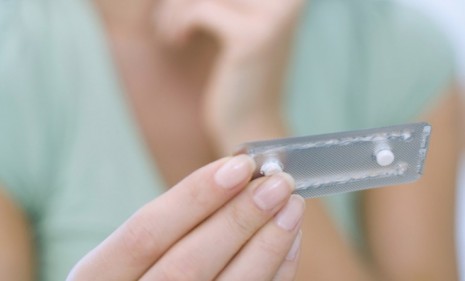Should women use the morning-after pill as birth control?
According to a new report, emergency contraception might also work well for non-emergencies — but is using the Plan B pill that way a wise idea?

A free daily email with the biggest news stories of the day – and the best features from TheWeek.com
You are now subscribed
Your newsletter sign-up was successful
The morning-after pill might soon need a new moniker. A new report in the journal Obstetrics and Gynecology suggests the emergency contraceptive might also work well as a woman's go-to form of birth control, a use doctors have typically discouraged in the past. Here, an instant guide:
What did the study find?
In a review of 15 studies involving 8,400 women, researchers found that women who took the morning-after pill right around the time of intercourse had a 5 percent chance of pregnancy, compared to the 16 percent chance of pregnancy among women who used condoms.
The Week
Escape your echo chamber. Get the facts behind the news, plus analysis from multiple perspectives.

Sign up for The Week's Free Newsletters
From our morning news briefing to a weekly Good News Newsletter, get the best of The Week delivered directly to your inbox.
From our morning news briefing to a weekly Good News Newsletter, get the best of The Week delivered directly to your inbox.
How is the morning-after pill used now?
Marketed under names like Plan B and Next Choice, the morning-after pill is currently only approved for one-time use as emergency contraception up to 72 hours after unprotected sex. Those over the age of 17 can buy a single dose over the counter for $10 to $70. Relying on it as your sole form of contraception is discouraged.
Why would someone want to use it as contraception?
Doing so would be handy for women who don't regularly have sex, or don't want to take the birth control pills all the time. And this study shows that the morning-after pill may be more effective than condoms.
A free daily email with the biggest news stories of the day – and the best features from TheWeek.com
But is it as effective as the regular birth control pill?
The studies reviewed didn't compare the effectiveness of the two pills, but Dr. Deborah Nucatola of Planned Parenthood of America says the morning-after pill would be less effective than long-term birth control options like the pill.
Is using it in this way safe?
Not entirely. Even regular birth control pills, which contain a much smaller dose of hormones than the morning after pill, carry some risk of blood clots, especially for women who smoke and are over 35. In the morning-after pill studies, the majority of the subjects took only half of a pill; 22 percent experienced irregular bleeding, a common side effect that wasn't a big issue for most. The report's findings are promising, says Nucatola. "But we need better long-term studies.
-
 The environmental cost of GLP-1s
The environmental cost of GLP-1sThe explainer Producing the drugs is a dirty process
-
 Greenland’s capital becomes ground zero for the country’s diplomatic straits
Greenland’s capital becomes ground zero for the country’s diplomatic straitsIN THE SPOTLIGHT A flurry of new consular activity in Nuuk shows how important Greenland has become to Europeans’ anxiety about American imperialism
-
 ‘This is something that happens all too often’
‘This is something that happens all too often’Instant Opinion Opinion, comment and editorials of the day